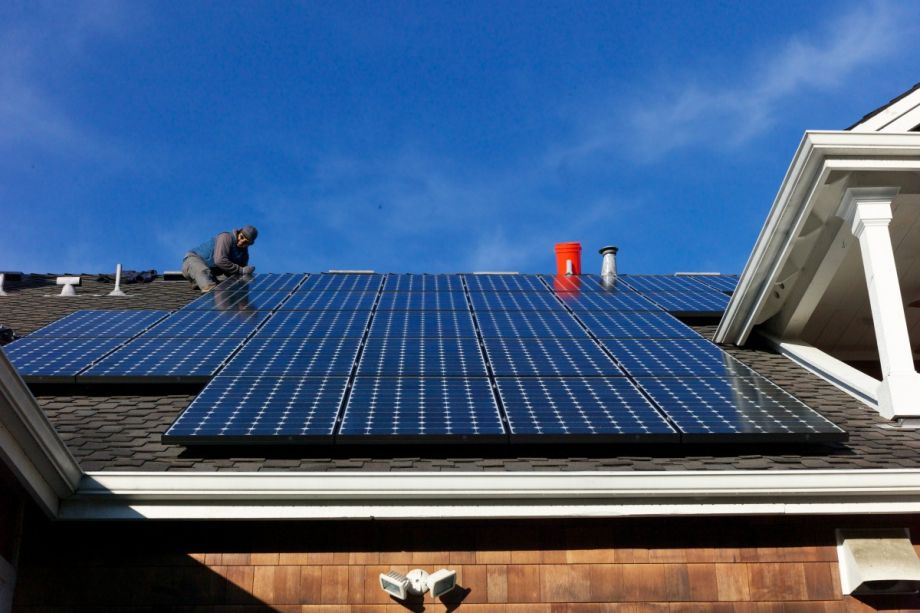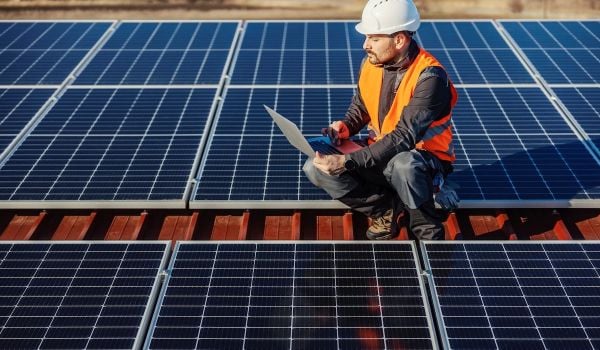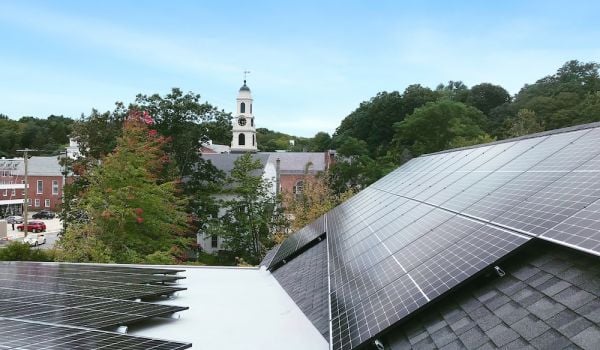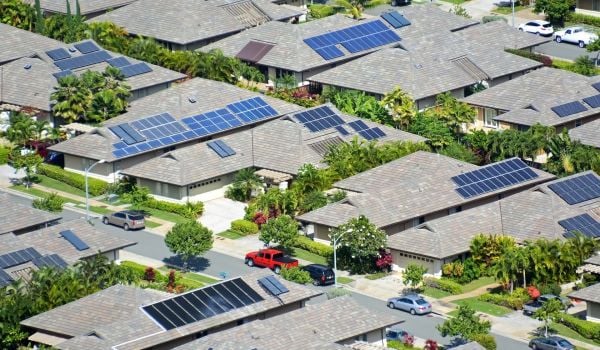In February, the U.S. Department of Energy released its second U.S. Energy and Employment Report to applause by businesses in the renewable industries. Clean energy, the department found, had passed the 3 million job mark in the U.S.
Zoom in on that number and you’ll likely find one story after another of how the sector has changed lives. That’s largely because of groups like GRID Alternatives, a solar nonprofit that provides systems to low- and moderate-income households, and targets its training initiatives at people with barriers to employment like incarceration records.
One of those lives is Jose Ramos’. He’s a solar installer in the Los Angeles region who was thrust into the South Central gang wars in the late ’80s. He got his first taste of juvenile detention just a year after getting jumped into his first gang at the age of 12.
From then on, it was one run-in with the law after another. But when the only organizations taking interest in your block are gangs, what you see in your front lawn is also what you see as the only way to make it in the world. “There were times when I wished, ‘Man, somebody come rescue me, somebody save me,’” Ramos remembers. “I was forced to do things that I didn’t want to do, and I was a scared little kid. It damaged me. Just talking about it right now makes me feel like throwing up.”
When he was 26, he was sentenced to 17 years in jail. He watched from the interior of a cell as his youth slipped away, and even though it wasn’t the type of savior he had in mind when he was younger, incarceration did make him decide to never return to the street.
On parole in his early 40s, he got out with a criminal record and no clear direction. But a friend told him to get in touch with Homeboy Industries. The paragon in the nonprofit job training space for ex-gang members in L.A. eventually put him through a volunteer and training program for a career in solar energy that was led by GRID Alternatives.
Daisy Meyer, the workforce development manager at GRID Alternative’s Bay Area hub in Oakland, makes it clear that they’re not a job program. “We’re a nonprofit solar installation organization that also offers job training,” she says.
That training is done through one of the myriad local organizations they partner with to do hands-on training in cities like San Diego, San Francisco, Oakland, New York and Denver. The benefit of working with an organization like Rising Sun Energy Center in Berkeley, for example, is that those institutions already have the capacity to act as full-fledged, independent job centers.
“One of the big ways we connect is we partner with job training organizations that are construction-minded, and also offer case management support in addition to training,” says Meyer.
But GRID prefers community organizations that align with the values laid out by some of their targeted initiatives, like RISE, which stands for Realizing an Inclusive Solar Economy. To build the core of that program, GRID Alternatives works with local stakeholders like community colleges and housing authorities to spread the word that solar can be a viable career no matter your criminal or education history. To date, they’ve trained 4,000 workers through RISE.
There’s also the National Women in Solar Initiative. “Women make up around 20 percent of the industry, which is way below 50 percent, and that’s including installers and staff in the office,” says Meyer. GRID Alternatives wants to attract more women to the industry and offer them the professional support they need to stay.
Ramos says because of an emphasis on bringing a more diverse roster into renewables, GRID Alternatives’ programs changed his life. He was trained at the East Los Angeles Skills Center. “That little school right there,” he says, “is a jewel.”
By going through the training process he was even able to get his parents, who he describes as retired but living in poverty, their own solar setup. All of his five siblings are still involved in the gang life, but he’s pushing the 16-year-old son of his brother to change his path, to save himself while he still can.
And maybe even get a job in the solar industry.
“It’s cutting edge, and it’s about giving our next generation a hopefully cleaner environment, to become less dependent upon the dirty fuels like coal and nuclear and all that,” he says.
It’s also given him immense confidence by letting him work alongside the types of professionals he never had in his life while growing up.
“Under different circumstances I would have never met or been in the same room as a UCLA student or engineer or someone who works for Tesla,” he says, describing some of his past work meetings with GRID Alternatives. “There’s a lot of hip people in the solar industry — people that are more open to people like myself.”
The Equity Factor is made possible with the support of the Surdna Foundation.
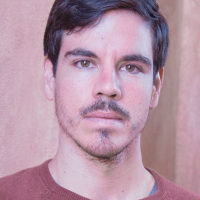
Johnny Magdaleno is a journalist, writer and photographer. His writing and photographs have been published by The Guardian, Al Jazeera, NPR, Newsweek, VICE News, the Huffington Post, the Christian Science Monitor and others. He was the 2016-2017 equitable cities fellow at Next City.


